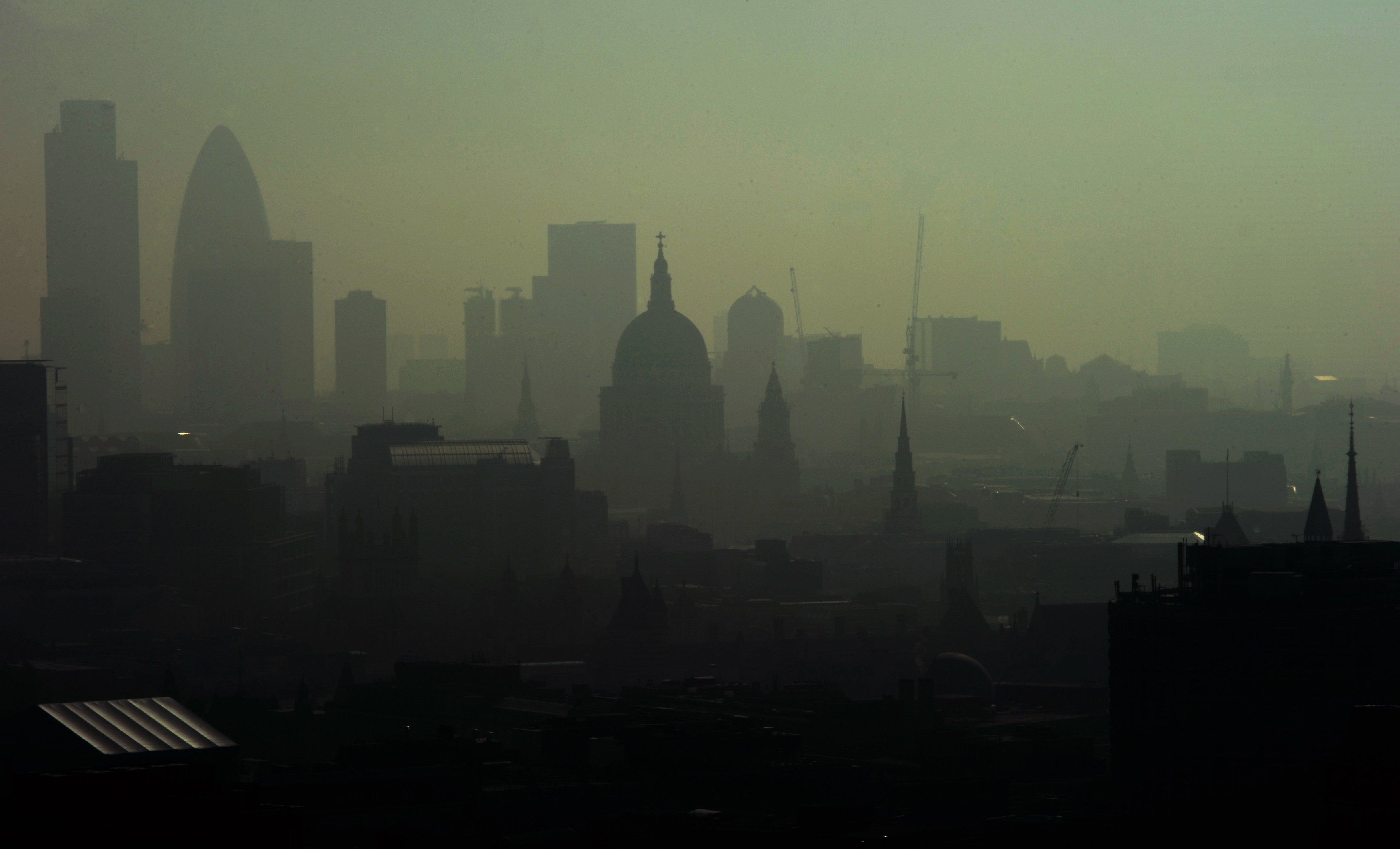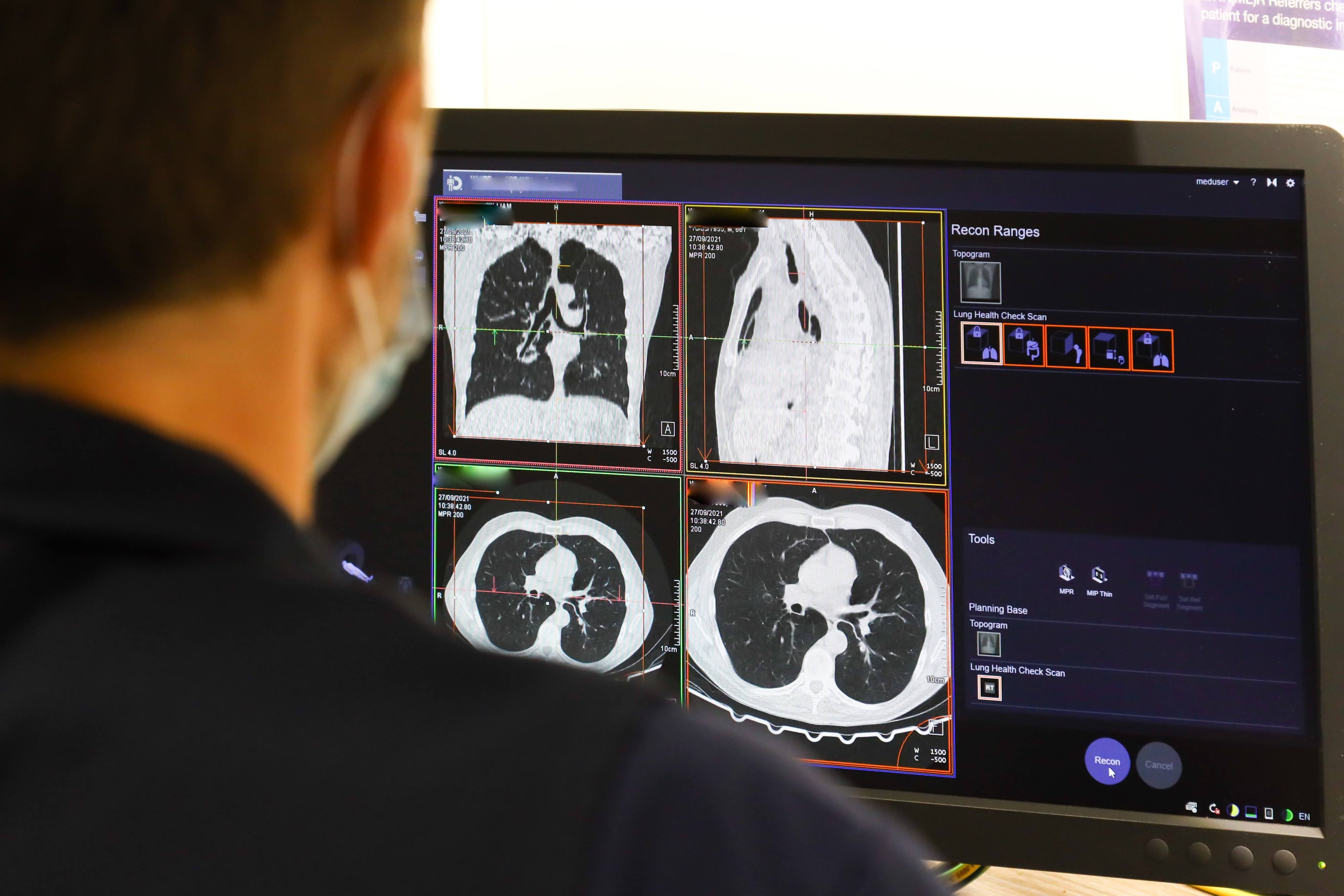Air pollution causes lung cancer, scientists discover
Fumes from vehicle exhausts and other fossil fuel smoke may increase the risk of lung cancer in nonsmokers, according to a revolutionary new study

Air pollution can cause lung cancer in people who have never smoked, according to new research from a team of international scientists.
Traffic fumes trigger tumours in a similar way to cigarettes and scientists identified a mechanism through which they fuel the disease.
The tiny particles, known as PM2.5s, are spewed by the burning fossil fuels.
Less than a 50th the width of a human hair, they get into the blood through the lungs making it more sticky - triggering inflammation.
They come from diesel fumes, brake pads, tyres and road dust. Increasing concentrations were linked to non-small cell lung cancer (NSCLC) - the most common form.
The study was based on human and laboratory analysis of mutations in a gene called EGFR - seen in about half of patients who have never smoked.
It involved nearly half a million people living in England, South Korea and Taiwan.
Lead author Professor Charles Swanton, of the Francis Crick Institute, London, said: “The same particles in the air that derive from the combustion of fossil fuels, exacerbating climate change, are directly impacting human health via an important and previously overlooked cancer-causing mechanism in lung cells.
“The risk of lung cancer from air pollution is lower than from smoking, but we have no control over what we all breathe.
“Globally, more people are exposed to unsafe levels of air pollution than to toxic chemicals in cigarette smoke, and these new data link the importance of addressing climate health to improving human health.”
The British team showed PM2.5s promoted rapid changes in airway cells which had mutations in EGFR.

They also affected another gene linked to the disease called KRAS, driving them towards a cancer stem cell like state.
They also found air pollution drives white blood cells which inhibit lung cancer initiation.
This was consistent with data from a previous large clinical trial showing a dose dependent reduction in lung cancer incidence when people were treated with the antibody, canakinumab.
In a final series of tests , state-of-the-art, ultradeep mutational profiling of small samples of normal lung tissue found the EGFR and KRAS mutations in 18 and 33 percent of normal lung samples, respectively.
Prof Swanton said: “We found driver mutations in EGFR and KRAS genes, commonly found in lung cancers, are actually present in normal lung tissue and are a likely consequence of ageing.
“In our research, these mutations alone only weakly potentiated cancer in laboratory models.
“However, when lung cells with these mutations were exposed to air pollutants, we saw more cancers and these occurred more quickly than when lung cells with these mutations were not exposed to pollutants, suggesting that air pollution promotes the initiation of lung cancer in cells harbouring driver gene mutations.
“The next step is to discover why some lung cells with mutations become cancerous when exposed to pollutants while others don’t.”
Earlier this year a study found air pollution is responsible for 1.8 million deaths across the world every year.
Professor Tony Mok, of the Chinese University of Hong Kong who was not involved in the study, said: “This research is intriguing and exciting as it means that we can ask whether, in the future, it will be possible to use lung scans to look for pre-cancerous lesions in the lungs and try to reverse them with medicines such as interleukin-1β inhibitors.
“We don’t yet know whether it will be possible to use highly sensitive EGFR profiling on blood or other samples to find non-smokers who are predisposed to lung cancer and may benefit from lung scanning, so discussions are still very speculative.”
Like Prof Swanton, he stressed the importance of reducing air pollution to lower the risk of lung diseases, including cancer.
Added Prof Mok: “We have known about the link between pollution and lung cancer for a long time, and we now have a possible explanation for it.
“As consumption of fossil fuels goes hand in hand with pollution and carbon emissions, we have a strong mandate for tackling these issues - for both environmental and health reasons.”
The study was presented at an ESMO (European Society for medical Oncology) meeting in Paris.
Join our commenting forum
Join thought-provoking conversations, follow other Independent readers and see their replies
Comments


Bookmark popover
Removed from bookmarks